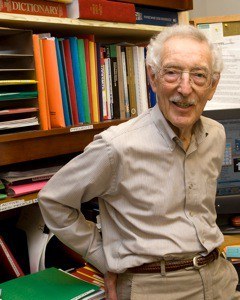I posited, and have buttressed, "triage theory" (1,2): metabolism responds to moderate deficiency of an essential vitamin or mineral (V/M) so that the scarce V/M is preferentially retained by V/M-dependent proteins necessary for short-term survival and reproduction. In contrast, proteins needed for long term health, which I term "longevity proteins" because they defend against the diseases associated with aging, lose the V/M and are disabled. Most of the world's population, including that of the U.S., are moderately deficient in one or more of the ~30 essential V/Ms. Moreover, since the damage from moderate deficiency is insidious, its importance for long-term health is not being appreciated. Strong support for triage theory comes from Joyce McCann's analyses of the literature on proteins dependent on vitamin K (3) and on selenium (4). Both have built into metabolism this trade-off between short-term survival and long-term health and each uses a different mechanism to accomplish this end. Theory and evidence suggest that this metabolic trade-off accelerates aging-associated diseases, such as cancer, cognitive decline, and cardiovascular disease. Importantly, by the official U.S. Institute of Medicine measure of inadequacy, the EAR (Estimated Average Requirement; the RDA is set at 2 SD above the EAR), most of the U.S. population is below the EAR for one or more V/M. Taking these long-term triage effects into account in setting EARs could lead to numerous changes. We have calculated from the NHANES database that the percentages of the U.S. population that are below the EAR are: magnesium 56%; zinc 12%; iron 16% of menstruating women; vitamin B6 49% of elderly women; folate 16% of adult women. The U.S. population also has very low intake of vitamin D, calcium, potassium, omega-3 fatty acids, vitamin K, and probably others, and this is especially true for children, adolescents, elders, and the obese. Longevity proteins, about half of those studied, indicate a mechanism that could be used for prevention by monitoring for insidious damage and suggest the existence of an undiscovered class of longevity V/Ms, which we are discovering. Our Choribar (V/M-dense, low-calorie, high-fiber, fruit-based) markedly improves metabolism in many human trials.


